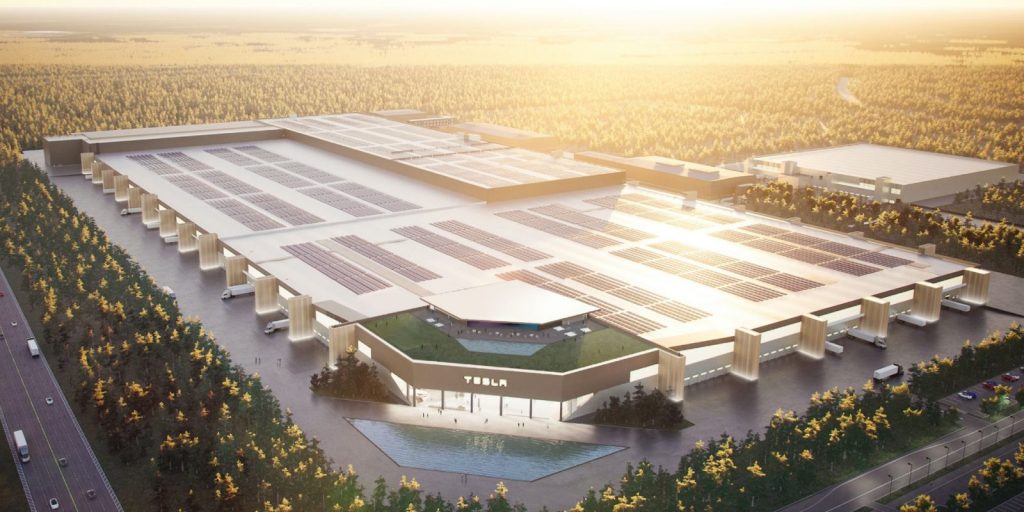Tesla is on track to open its gigantic German “Gigafactory” in the new year after overcoming the final barriers.
According to CNBC, the Berlin-Brandenburg facility has been in the works for over two years, and while many people have praised the investment and job creation, including the mayor of adjacent Gründheide, its construction has been hampered by a number of local disputes and oppositions.
According to regional station RBB24, the latest stumbling block is a dispute over a water pumping infrastructure in the region where the Gigafactory is located, which could have ramifications for the factory’s operations.
CNBC further reported that a hearing was scheduled for earlier this month at the administrative court in Frankfurt (Oder), but it was postponed. The lawsuit concerns environmental groups’ legal action against local governments over water supplies in the region, which would include pumping water to Tesla’s installation. It is predicted to consume enormous amounts of water on a yearly basis, which has alarmed certain environmental groups.
The name Gigafactory comes from the unit of measurement “giga,” which stands for “billions.” The Gigafactory is being built in stages so that Tesla may start producing right away inside the completed portions and expand from there.
Tesla announced plans for a Gigafactory near Berlin, its first in Europe, to open in late 2019, right next to Volkswagen and Daimler, two of Germany’s traditional automakers.
Despite the pandemic’s setbacks, Tesla pressed forward with construction rapidly, but it has faced local obstacles and red tape since the first brick was laid. Plans to expand the facility’s remit to include battery cell production have recently garnered considerable concern.
As rivals like Volkswagen press ahead with their own EV manufacturing plans in Wolfsburg, the competition for automotive and tech skills for the factory will be fierce.
Another issue is the world’s persistent supply chain disruptions and microprocessor shortages, which have harmed the automobile sector as a whole.

